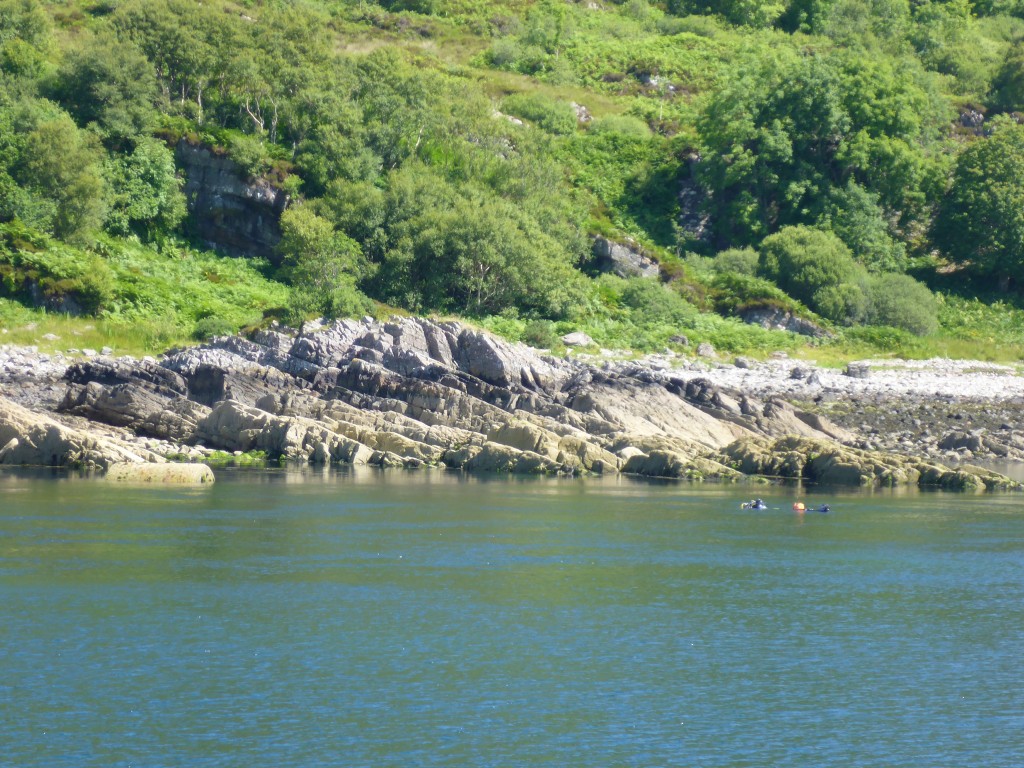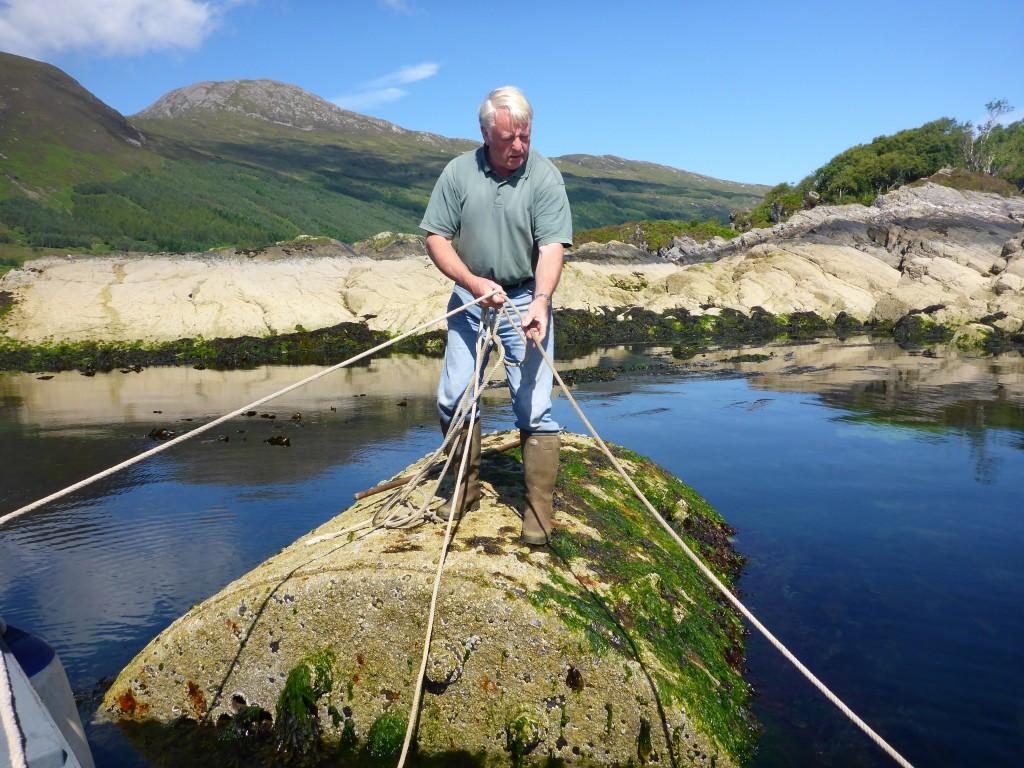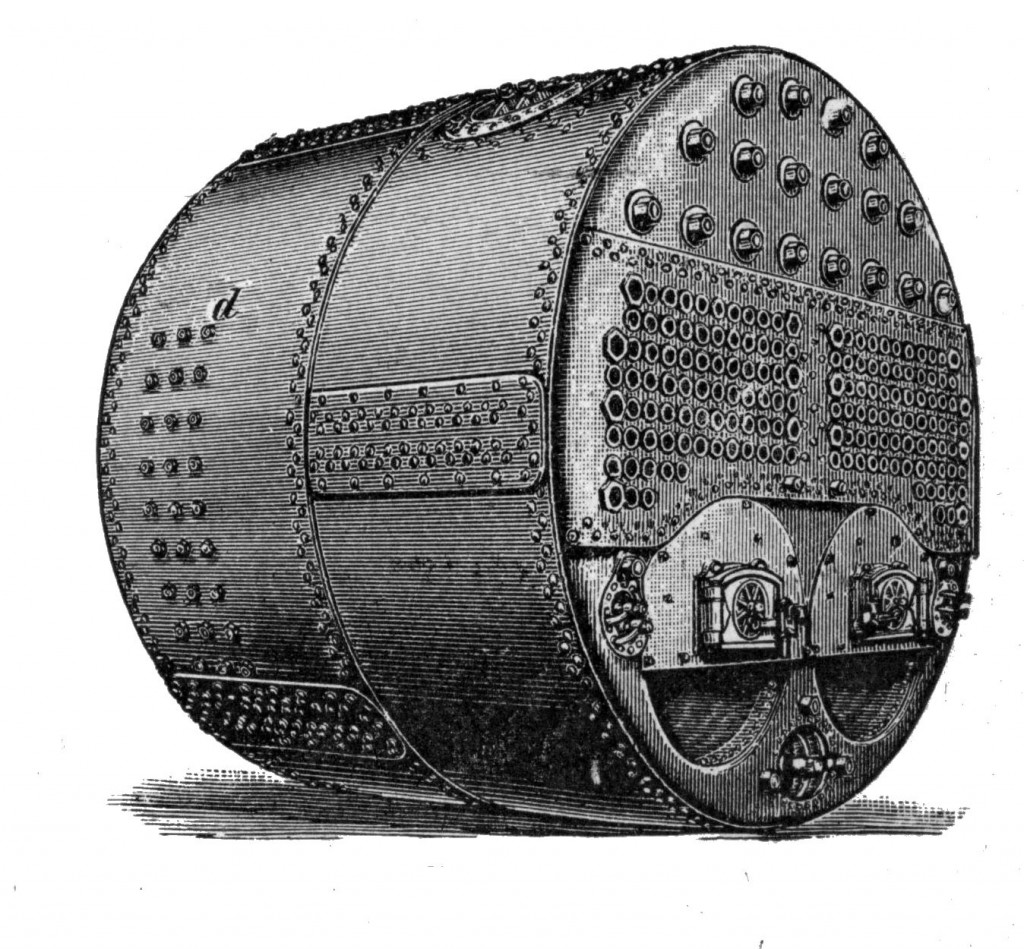It is only possible to dive this site for a short period due to its proximity to the narrow strait at Kylerhea and strong local tides. The team carried out a single dive on the site at low tide, carrying out a thorough search of the gully below the boiler. We found a small number of artefacts which may relate to the wreck but were unable to locate the main concentration of wreckage described by local divers before tidal conditions meant that the divers had to return to the boat. At the same time our volunteer researcher Chelsea accompanied Mr. Watt to carry out an investigation of the boiler on the shoreline which is exposed at low tides.
Chelsea was later able to identify the boiler as a Scotch Marine Boiler, a type in common use from the mid-19th century to the early 20th century. This is highly significant as it allows us to rule out a number of possible reported losses in the area and make a possible identification.
Given the local tradition that the vessel had a cargo of coal and the identification of the steam boiler, it first appeared that this could be the wreck of the Deerpark. The Deerpark was a steel steamship built in 1901 and lost on the 11th November 1912 in Glenelg Bay with its cargo of coal. However further research for the SAMPHIRE project showed that the Deerpark was refloated in 1914 and sold for repair before being scuttled by a German U-Boat in 1916. There are several other vessels recorded as lost in Glenelg but most of them are somewhat too early to have had a boiler of this type. The remaining possibility is that this is the Medora, a schooner reported as having stranded in Glenelg in 1860 with a cargo of staves. There is no record that this vessel was recovered and this identification matches with descriptions by local divers that the wreckage appears to be of a wooden vessel. Further research should help us to confirm this identification so watch this space!



